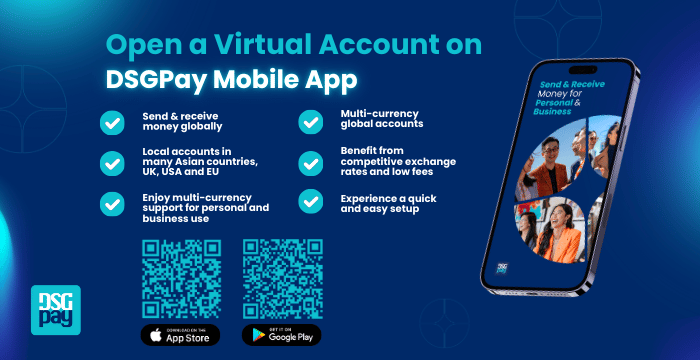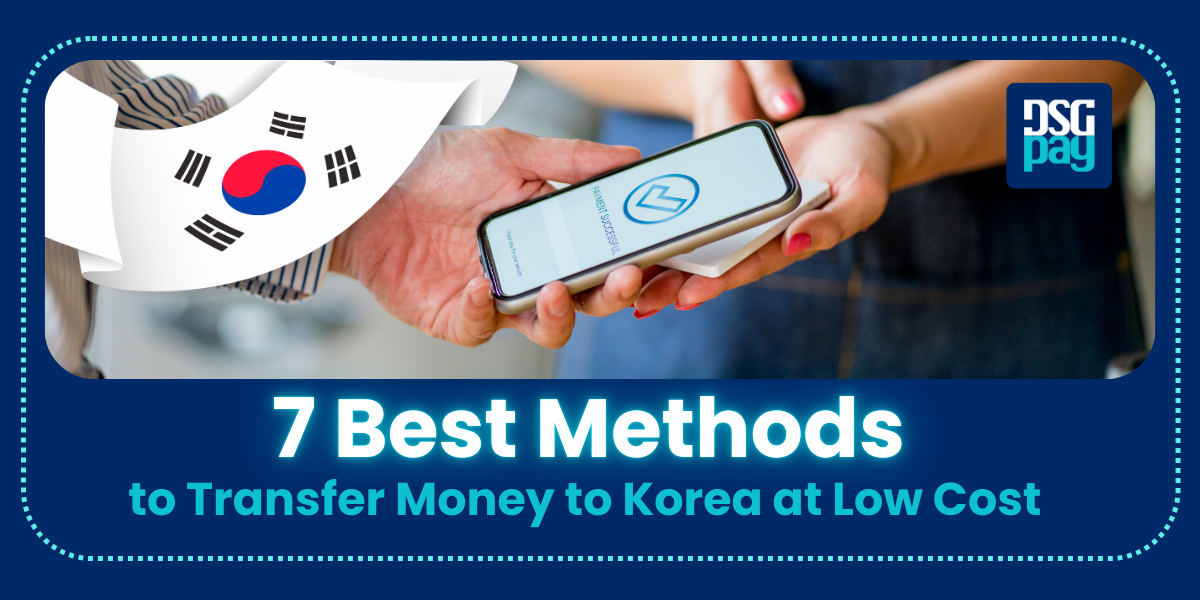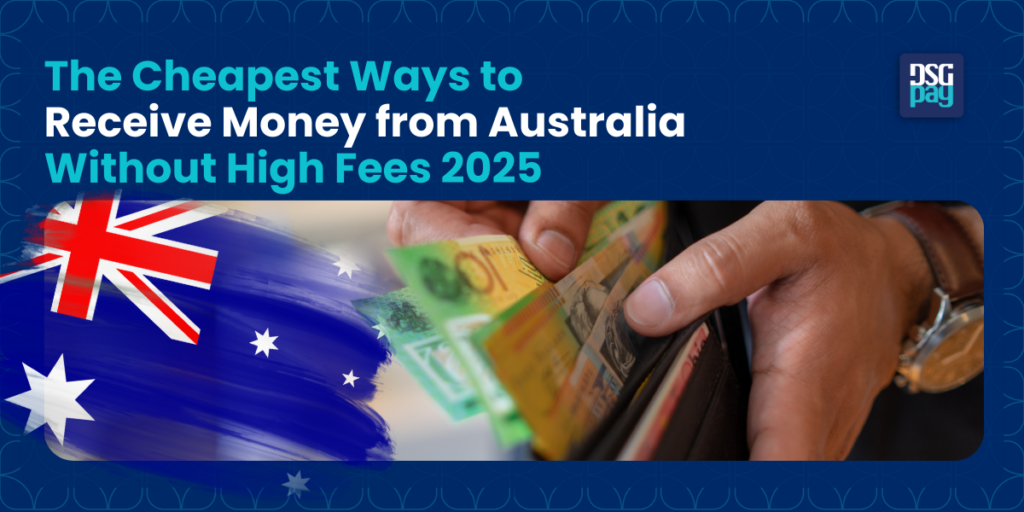Looking for ways to transfer money to Korea? You’ve landed at the right place. With over $7.7 billion in remittances sent to South Korea annually, many people, whether they’re expats, workers, or businesses, are searching for a more cost-effective way to send money home.
The problem? Traditional banks often come with hefty fees and poor exchange rates, making your hard-earned money go further than you’d like.
Plus, some transfer methods take days to process, and when you need to transfer money to Korea quickly, waiting 3-5 business days just isn’t an option. Security is also a major concern, with many fearing fraud or unreliable services.
And let’s not forget about transfer limits, legal requirements, and ever-changing regulations that make the process even more complicated.
In this article, we’ll break down the best methods to send money to Korea while keeping your costs low, your transfers fast, and your peace of mind intact.
Table of Contents
Key Takeaways:
- Traditional banks charge hefty fees and offer poor exchange rates, making them a bit of an expensive option for international transfers.
- Transfers over $10,000 must be reported to Korean authorities, and only approved banks can process international transactions.
- Wise offers the best exchange rates, Remitly is the fastest, and bank transfers are the most secure but costly.
- Some methods take days, while others (like PayPal Xoom or Remitly Express) offer near-instant transfers at a higher cost.
- Always check exchange rates, transfer fees, and possible extra charges when using online services or banks.
Things to Know Before You Transfer Money to Korea
Sending money to South Korea isn’t as straightforward as you might think. There are strict financial regulations in place, and failing to follow them could lead to fines or delays.
- Reporting Requirements
- If you send over $10,000 per year, it must be reported to the Korean National Tax Administration.
- Failing to report could lead to fines or delays in processing your transfer.
- Use of Approved Banks
- Not all banks can process international transfers to Korea. You must use a designated financial institution.
- This ensures compliance with Korean banking laws and helps prevent transfer issues.
- Donation Restrictions
- Foreigners sending donations under $50,000 per year must still go through an approved bank.
- This rule is in place to monitor and regulate large financial transactions.
- Exchange Rates and Fees
- To transfer money to Korea, check the currency exchange rates and transfer fees, as they can vary between banks and money transfer services.
- Some services may charge hidden fees that reduce the final amount received.
- Transfer Speed
- International transfers may take a few hours to several days, depending on the method used.
- Make sure to choose a service that meets your time requirements if the transfer is urgent.
By considering these factors, you can smoothly transfer money to Korea without any hassle.

Top Methods to Transfer Money to Korea
1. Wise
If you need to transfer money to Korea, Wise (formerly TransferWise) is one of the best options. It’s fast, secure, and, most importantly, transparent about fees. Unlike traditional banks that inflate currency conversion rates and sneak in extra charges, Wise offers real mid-market exchange rates with low, transparent fees—the same ones you’d see on Google. With over 12.8 million users worldwide, it’s a trusted choice for international transfers.
Wise Fee Structure to Transfer Money to Korea:
- Lower Fees for Bigger Transfers: The more you send, the lower the percentage fee.
- Mid-Market Exchange Rate: No hidden markups or unfair conversions.
- Payment Method Matters: Bank transfers are the cheapest, while credit cards might have extra fees.
- Rate Lock for 48 Hours: Secure an exchange rate to avoid sudden price changes.
- Large Transfer Perks: If you send over 20,000 GBP (or equivalent), you get lower fees and priority support.
To know exactly what you’ll pay, Wise has a fee calculator on its website, so there are no surprises.
Pros:
- No hidden costs, just a clear breakdown of what you’re paying.
- Most transactions arrive within 3 minutes.
- Use bank transfers, debit/credit cards, Apple Pay, or Google Pay.
- Encrypted transactions, regulated by financial authorities.
- A simple website and app make sending money a breeze.
Cons:
- If you’re sending a small amount, fees might be slightly higher than some competitors.
- Fees is higher when paying with credit cards
- If you send a big amount, you might need extra ID checks.
Is Wise Worth It?
If you want a fast, reliable, and fairly priced way to transfer money to Korea, Wise is a great choice. You get honest fees, great exchange rates, and quick transfers—without the hidden charges that banks love to add.
2. Revolut
Revolut is a British fintech and neobank offering digital banking services to individuals and businesses in over 48 countries. Founded in 2015 by Nikolay Storonsky and Vlad Yatsenko, it started as a prepaid card for low-cost international spending. Over time, Revolut expanded to include stock and crypto trading, loans, and savings. It secured an EU banking license in 2018, later obtaining a UK banking license in 2024.
Revolut Fee Structure to Transfer Money to Korea:
Understanding the costs involved in sending money internationally is crucial. Here’s how Revolut structures its fees for transfers to South Korea:
- Bank Transfer Fee: $7.50 per transaction
- Amount Converted: After deducting the transfer fee, the remaining sum is exchanged at the current rate
- Exchange Rate: Fluctuates based on market conditions but is displayed in-app before confirming the transfer
- Recipient Receives: The final amount in KRW depends on the exchange rate at the time of transfer
Pros:
- Revolut offers real-time exchange rates, often better than banks.
- Revolut-to-Revolut transfers are instant.
- Choose from bank transfers, card transfers, or instant Revolut transfers.
- Fees are shown upfront before confirming.
- Strong security with fraud detection and encryption.
- A user-friendly app.
- 24/7 support via in-app chat.
Cons:
- Extra fees may apply for weekend transfers.
- Some currencies and partners may have transfer limits.
Is Revolut Worth It?
If you want to transfer money to Korea, Revolut stands out as a convenient and cost-effective solution. Revolut provides live exchange rates and fee details upfront, ensuring transparency before you proceed with your transaction. However, if you frequently transfer small sums or need guaranteed next-day delivery, it may be worth exploring.
3. Remitly
Remitly is a digital remittance service that makes sending money to South Korea fast, secure, and affordable. Founded in 2011, it operates entirely online, allowing users in 30 countries to send money in various currencies, including KRW. With options for bank deposits, mobile wallets, and cash pickups, recipients in Korea can access funds quickly and conveniently.
Remitly offers two ways to send money:
- Express: Faster transfers (usually instant), but higher fees, especially if using a debit or credit card.
- Economy: Takes 3-5 days but costs less, sometimes even free.
Remitly Fee Structure to Transfer Money to Korea:
Here’s what you’ll pay when sending money to South Korea:
- From the U.S.: Free for transfers over $1,000; $3.99 if you send less.
- From the UK: Express costs £2.99; Economy costs £1.99.
- From Canada: Free for transfers over CAD $1,000; CAD $3.99 if you send less.
- From Australia: Express costs AUD $3.99; Economy costs AUD $1.99.
Pros:
- Easy-to-use app, even for first-timers.
- Multiple ways to receive money, including bank deposit, cash pickup, and mobile wallets.
- Locks in exchange rates at the time of transfer to avoid fluctuations.
- Choice between speed (Express) or savings (Economy).
- Real-time tracking and SMS updates.
- Special offers and lower fees for first-time users.
Cons:
- Fees can be high for smaller transfers.
- Sending large amounts may require extra verification.
- Only available in 22 countries.
- Exchange rates may not always be the best compared to competitors.
- Express transfers cost more when funded by a debit or credit card.
Is Remitly Worth It?
If you need a fast, and simple way to send money, Remitly is a good choice, especially for larger transfers where you can take advantage of free fees with Economy. However, if you’re sending smaller amounts or looking for the best exchange rate, it’s worth comparing with other services.
Overall, if you want to transfer money to Korea (or any other supported country), Remitly is reliable and easy to use—just keep an eye on the fees.
4. PayPal Xoom
Xoom is an international money transfer service owned by PayPal, designed for fast and secure transactions. It allows users to send money to over 160 countries, including Korea, through multiple transfer methods.
With Xoom, you can initiate transfers online or via the mobile app, making it a convenient option for those who need to send money without visiting a physical location.
Fee Structure of Xoom to Transfer Money to Korea:
Xoom’s fees depend on how you choose to pay:
- PayPal USD (PYUSD): $0.00
- PayPal Balance: $4.99
- Bank Account: $4.99
- Debit Card: $15.00
- Credit Card: $15.00 (plus possible cash advance fees from your card provider)
Pros:
- Fast transfers, with money arriving within minutes, especially to major South Korean banks.
- Convenient, as you can send money directly from your phone or computer.
- Secure transactions with encryption and fraud protection.
- Multiple delivery options, including bank deposits, cash pickups, and mobile wallets.
Cons:
- High fees, particularly for debit or credit card payments.
- Transfer limits may apply depending on your account and payment method.
- Potential delays if the transaction is flagged for review.
Is Xoom Worth It?
Xoom is a good choice to transfer money to Korea if you prioritize speed and convenience. It’s particularly useful for urgent transfers and those who prefer digital transactions. However, the fees can be high, especially for card payments, so it may be worth comparing with other services to find the best option for your needs.
5. Bank Transfers
Bank wire transfers are a reliable way to send money to South Korea, allowing direct transfers between bank accounts. While they offer security and broad acceptance, they can be slower and costlier than modern online services. Fees and exchange rates vary by bank, and intermediary banks may apply additional charges to transfer money to Korea.
Fee Structure for Different Banks to Transfer Money to Korea:
Wire transfer fees vary depending on the bank or service you use. Here’s a breakdown of typical costs:
- Bank of America: $45 for USD transfers, free for foreign currency transfers (exchange rate markup applies).
- Chase Bank: $40 for online transfers, $50 for assisted transfers.
- Wells Fargo, PNC, and CitiBank: Fees range from $25 to $50, depending on the service type.
Pros:
- Safe and reliable since banks follow strict rules.
- Money goes straight to the recipient’s account, reducing mistakes.
- Some banks lock in exchange rates at the time of transfer.
- Good for large transfers that apps might not allow.
Cons:
- Expensive, with fees ranging from $25 to $50, plus exchange rate markups.
- Can take 1 to 5 business days to process.
- Some banks add hidden costs by adjusting exchange rates.
- Customer support can be slow if problems come up.
Are Bank Wire Transfers Worth It?
If you need a safe, direct, and high-limit way to transfer money to Korea, a bank wire transfer is a good option. However, if you’re looking for lower fees and faster transfers, services like Wise, OFX, or Western Union might be better alternatives.
6. OFX
Transferring money to Korea through OFX is a cost-effective alternative to traditional banks. Offering competitive exchange rates and a user-friendly platform, OFX simplifies international transactions. It’s a convenient option for individuals and businesses alike.
Fee Structure of OFX to Transfer Money to Korea:
- OFX does not charge transfer fees for amounts exceeding $10,000, making it an attractive choice for larger transactions.
- Flat fee applies for transfers below $10,000.
- Lower exchange rate markups compared to traditional banks.
- Potential intermediary bank fees, which vary based on the institutions involved.
Pros:
- Competitive exchange rates, often better than bank rates
- Supports transfers to over 190 countries and 55 currencies
- Well-established company with global offices and regulatory oversight
- 24/7 customer support with both online and offline assistance
- No transfer fees for large transactions
Cons:
- Smaller transfers may be subject to fees, making them less cost-effective
- Transfers are bank-to-bank only, with no cash pickup option
- Processing times may be slower compared to instant transfer services
Is OFX Worth It?
If you’re sending large amounts (over $10,000), OFX is definitely worth it. However, if you’re sending smaller amounts, the flat fee and slower transfer times might make other services a better choice. OFX is best suited for businesses or individuals making significant international transfers rather than quick, low-value remittances.
7. Western Union
Western Union makes sending money to Korea quick and hassle-free, offering online, mobile, and in-person transfer options. You can send funds via bank transfer, credit/debit card, cash at an agent location, or Google Pay through the app. With real-time tracking, exchange rate alerts, and a vast global network, Western Union ensures secure and convenient money transfers.
Fee Structure of Western Union to Transfer Money to Korea:
- Fees range from $2.90 to $75, depending on the amount sent and payment method.
- Sending up to $1,500 may cost around $48.50.
- Using a credit card may incur additional fees.
Pros:
- Extensive network of agent locations in South Korea for easy cash pickup.
- Many transfers are completed within minutes, depending on the method used.
- Able to transfer money to Korea online, via mobile app, or at an agent location.
- Available in over 200 countries, making it convenient for international transfers.
Cons:
- Can be costly, especially for small transfers or certain payment methods like credit cards.
- May not always offer the best rates compared to other services.
- While tracking is available, it may not be as detailed as some competitors.
Is Western Union Worth It?
The fees can be high, especially for smaller amounts, and the exchange rates may not be the best. If speed and ease matter most, it’s a perfect choice, but if you want to save on fees, it’s worth checking other options.
Common Mistakes to Avoid When Sending Money to Korea
When you transfer money to Korea, small mistakes can lead to delays, extra fees, or failed transactions. Here’s what to watch out for:
- Double-check bank details to avoid delays or failed transfers.
- Compare exchange rates to get the best deal.
- Be aware of transfer fees and possible extra charges.
- Check if the recipient’s bank has limits on foreign currency transfers.
- Use a reliable money transfer service with good rates and fast processing.
- Choose the right transfer method based on speed and cost.
- Be cautious of scams and never share financial details with unknown sources.
FAQs: How to Transfer Money to Korea
Q: What’s the most affordable way to send money to South Korea?
The cheapest option depends on exchange rates and transfer fees.
Q: What’s the best way to transfer money to Korea from overseas?
It depends on your priorities—low fees, fast transfers, or security. Digital payment platforms are often the most cost-effective and efficient compared to traditional banks.
Q: How fast can I transfer money to Korea?
Transfer speed varies—traditional banks may take 1-5 days, while digital services and mobile wallets can process payments instantly or within hours.
Q: What’s the safest way to transfer large amounts?
Bank wire transfers are considered secure, but they can be expensive. Some online services also provide bank-level encryption and compliance while offering better rates.
Q: Are there any limits on how much I can send to Korea?
Yes, transactions over $10,000 per year must be reported to the Korean National Tax Service. Some providers also have their own limits based on regulations.
DSGPay: The Smarter Way to Transfer Money to Korea
Looking for the fastest, most cost-effective way to transfer money to Korea? DSGPay stands out from other money transfer services due to its unique combination of multi-currency support, seamless business integration, speed and competitive fees.
Unlike other platforms, DSGPay also offers virtual accounts for businesses and freelancers, making it an even more powerful financial tool for managing global payments.

Why Choose DSGPay?
- Virtual Named Account: Open a business account in your company’s name to appear local in Korea.
- Faster Transfers With Efficient KRW Payouts: Unlike banks that take 1-3 days, DSGPay ensures fast KRW payouts.
- No Hidden Fees: Transparent pricing with competitive exchange rates.
- Multi-Currency Support: Accept and send payments in 30+ currencies.
- Seamless API Integration for Businesses: Automate bulk payments and international transactions.
- Real-Time Tracking: Get instant notifications for every transfer.
- Mobile-Friendly: Send money from anywhere with our user-friendly mobile app.
Whether you’re a freelancer, an e-commerce business, paying suppliers, or just sending money to family, DSGPay ensures a faster, more affordable, and more efficient way to transfer money to Korea.



